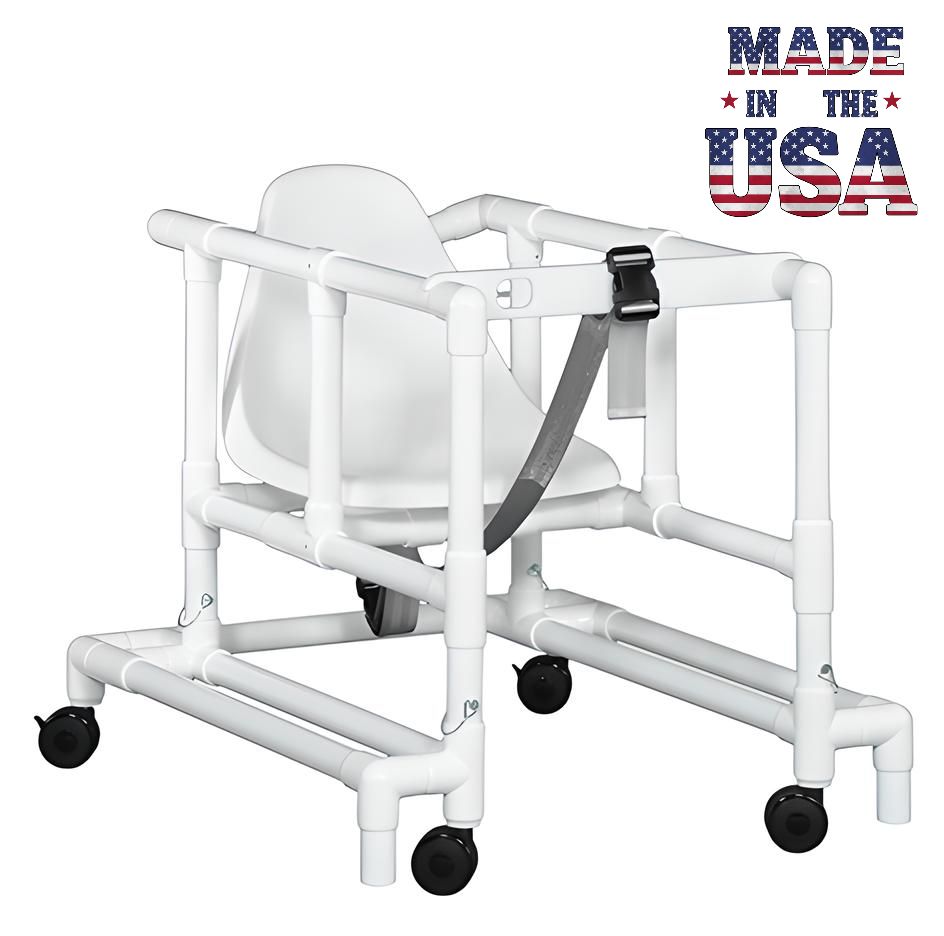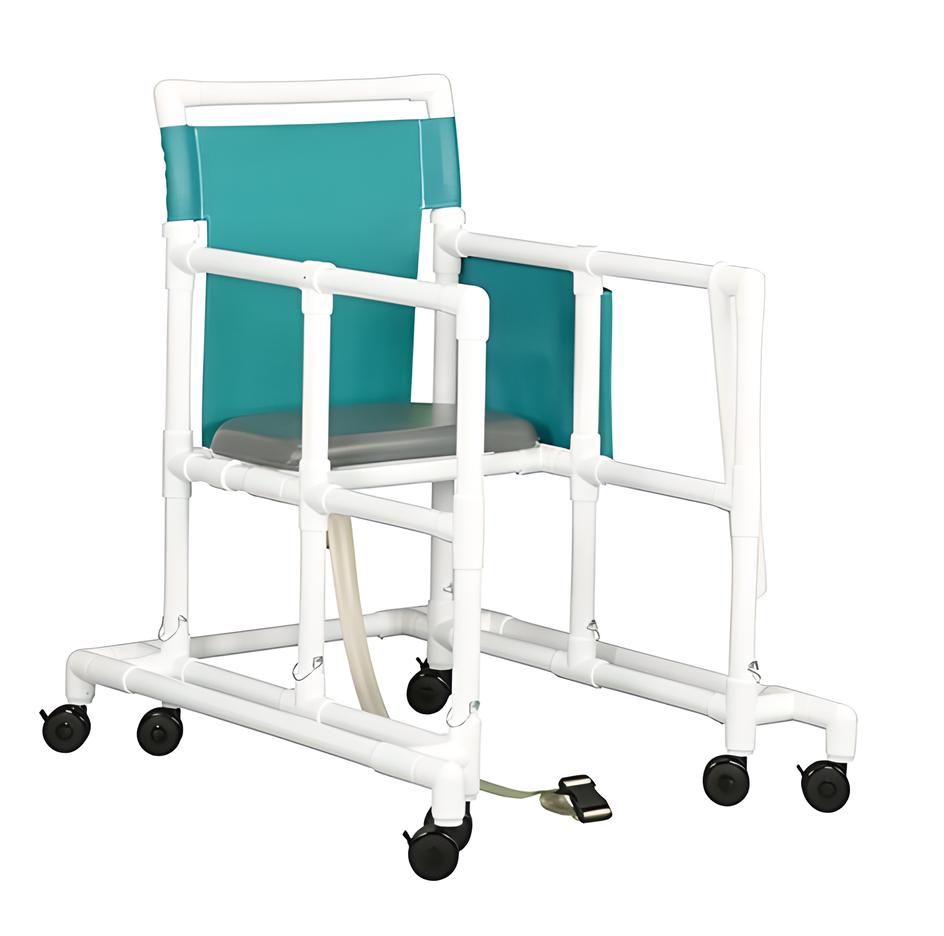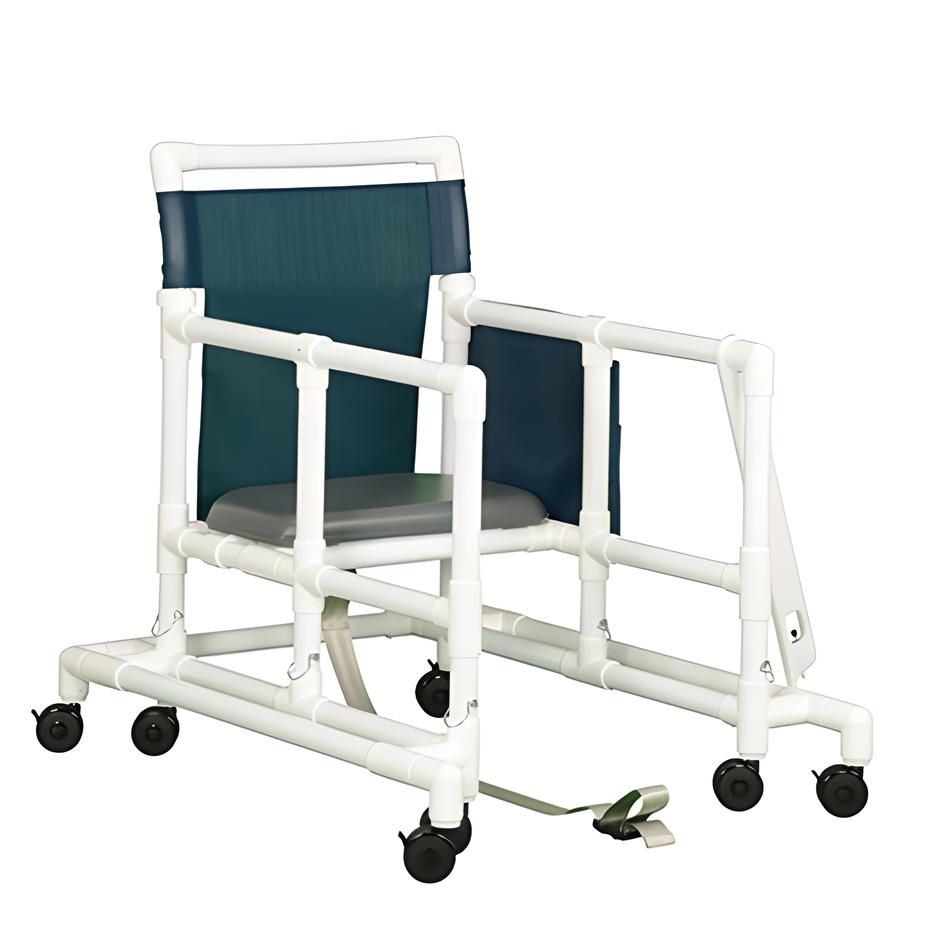Home » Home Health Care Products & Supplies » Bariatric Walkers » Bariatric Walkers
Bariatric Walkers

Standard Line Walker w/Contoured Seat 300 LB CAP
Retail Price: $500.00
Your Price: $357.14
 Unit: single
Unit: single

Extra Tall Ultimate Walker 400 LB Capacity
Retail Price: $852.00
Your Price: $608.57
 Unit: single
Unit: single
Any physician treating a bariatric patient must be prepared to deal with the particular situations that arise in treating the obese. Due to their larger size, obese patients must have many aspects of their care taylored to their specific needs. Included among these is the need for a special walker. Bariatric walkers should be wide enough for the patient's girth and sturdy enough to hold up their weight, while at the same time they are adaptable enough to allow for the greatest mobility for the patient.
Most patients will need a walker for home use. They must look for a bariatric walkers that will suit their specific needs. It must hold up their at least their current weight, and it must be wide enough for the patient to fit between the bars comfortably. The walkers must also be at just the right height in proportion to the patient's own. The rails should reach no higher than the patient's elbows so that he will be able to pick it up as he steps. Many home walkers are also collapsable, and like those found in a hospital, the frame must be able to last through months of use. The walkers must be easy to adjust for the patient. The hand rails must be simple to grip and have a non-slip option and padding. A quality bariatric walker will likely have all of these features.
Obese patients do not want to feel like they are being singled out, but their need for a specific walker will likely do just that. For the patient's comfort, they will need to be given a bariatric walker. This will ensure that the patient has the proper support for his mass, since for some patients, the average walker will not be sufficient. The weight supported by a bariatric walker can vary by brand, and anyone who is looking ought to take into account all the possibilities of levels of obesity in forthcoming patients. Some bariatric walkers will only hold up patients with weights up to 400 pounds, while others will support up to 700 pounds. The height of the walker is also important, since they are often available in sizes of 31 inches to 38 inches and are adjustable. Every patient should be offered a walker that will comfortably support him and let him not feel cramped by avoiding a too small walker.
Bariatric walkers must also be able to perform all of the same tasks that typical walkers do. Many are adjustable for height. There must be some way to securely lock the walker at the adjusted height without it falling, no matter how much weight is put upon it. This is especially important with bariatric walkers that are required to uphold greater loads. The frame must be strong enough to move the weight of the and the patient without bending or breaking during use or wearing out too soon. A strong, lightweight frame is an important feature in a bariatric walker. The walker must be light enough for the patient to easily lift several times. A quality model should be weigh no more than ten pounds for the optimal effect, but the weight of a quality walker is never compromised for the strength of the structure. A stong bariatric walker will last longer than one constructed of shoddy materials. This will save the cost of frequently repairing or replacing the walker itself in the future. As most caregiver budgets are often strained, this is the only sensible option, but never sacrifice quality for price. The patient's comfort must always come first in any situation, including the choice of his bariatric walker.















